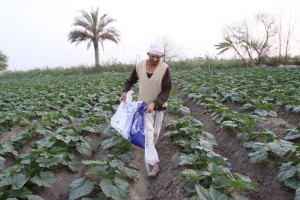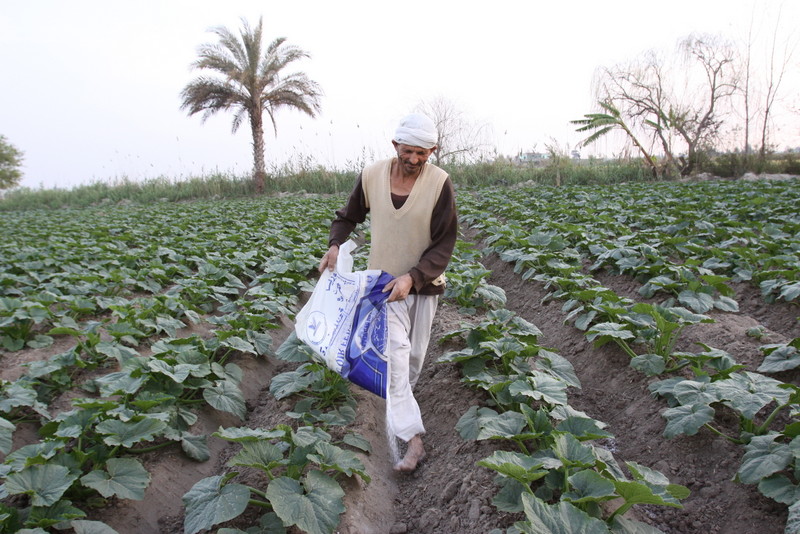
(Photo by Hassan IbrahimDNE)
By Mohamed Abdel Monsef
The fertiliser crisis entered a new stage following the refusal of several free zone factories producing fertilisers to supply the agreed upon share in cooperation with the Ministry of Agriculture.
The law covering the establishment of free investment zones states that companies must export all of their products, according to Chairman and Managing Director of Misr Fertilisers Production Company (MOPCO) Adel Fadel. He added that the law does not take into consideration the shortage of subsidised fertilisers given to farmers.
He said that, in order to overcome this crisis, the government must take a decision to oblige companies to supply the Ministry of Agriculture with a percentage production. In return, the ministry will provide the gas supplies required to produce this amount at a subsidised price.
Fadel pointed to the difficulties companies face in providing for their gas demands, which accounted for 70% of the production process in 2014. This came despite their purchasing gas at the international price of $4.5 per million BTUs.
Fadel confirmed that factories’ production capacity has declined by 50%, threatening a permanent stoppage. As a result factories cannot commit to supplying the ministry with 30,000-50,000 tonnes per month with prices lower than costs.
Fadel said that stopping exports causes Egypt to lose its share in international markets and imposing fees on exports renders Egyptian products unable to compete. He added that Egypt exports to India, Southeast Asia, and Sudan.
Director of Syntic, Mohamed Adel Al-Ghandour, demanded the cancellation of fertiliser subsidies since factories require 13 component subsidies rather than one, nitrogen. This leads to farmers adding more nitrogen in contravention of standards.
This eventually leads to deterioration of the soil.
Al-Ghandour believes that to solve this, the doors must be opened to the private sector to import fertilisers at an international price on the condition that crops from farmers match international pricing, since subsidies are directed to brokers and farmers do not benefit.
Al-Ghandour the black market will not end because there are huge land areas outside the agricultural factories’ ownership with no right to use subsidised fertilisers. This forces them to purchase fertilisers from the black market, colluding with the owners of agricultural organisations and black market traders.
Similarly, president of the General Association for Agricultural Reform, Magdy Al-Sharaky, called for ending the black market by forming committees of agricultural cooperative associations. These will examine all land areas in order to stop putting fertilisers in undeserving hands.
Al-Sharaky demanded that fertilisers be given only to farmers instead of land owners who do not use the products, instead selling their shares on the black market. This in turn forces the land renter to buy from the black market. Al-Sharaky pointed to difficulties associations face in moving fertilisers from factories to storage due to worker strikes.
Al Sharaky also declared that subsidised fertilisers from the Ministry of Agriculture amount to 2.8m tonnes. Of this, 7% is given to the General Association for Agricultural Reform, 53% to the General Association for Agricultural Credit, 23% to the Principal Bank for Development & Agricultural Credit (PBDAC), and 17% to the General Association for Reclaimed Land.




